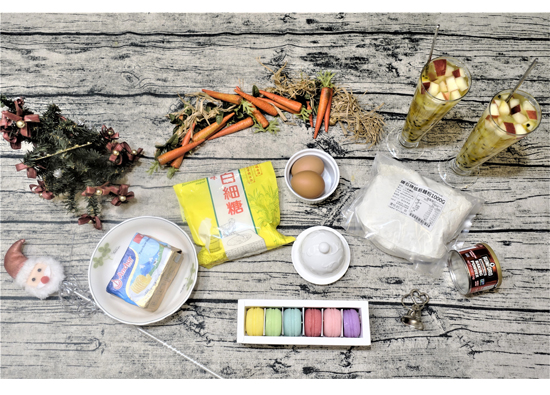12.2020 Life Guide
Are investors like gardeners or carpenters?
Far Eastern International Bank / Ji Congfan

Since the end of November, the new system of intraday zero share trading has not only become the new favorite of many petty bourgeoisie, but also a good choice for beginners. In this issue, Far Eastern International Bank is invited to tell you what lessons investors should do to reduce risks due to the ever-changing financial market?
In the field of investment, we are more like carpenters who can create anything? Or gardeners who can't control plant growth? Before we can answer this question, we have to explore the differences between gardeners and carpenters.
Alison Gopnik explains the difference between gardeners and carpenters in his book gardeners and carpenters: carpenters have the ability to create their ideal workshops, including humidity, temperature, accurate measurement between structural drawings and actual dimensions, and the appearance of the works is exactly the same as what the carpenters think. However, gardeners, on the contrary, often encounter uncontrollable variables and must adapt to the ever-changing and unexpected growth environment. Even if they do their work right, they may still be affected by external forces and eventually fail to achieve results.
Brendan mullouly, a well-known financial blogger, also mentioned that investment is a kind of gardening work, not a carpenter. Those who want to make profits by using carpenter investment method will easily fall into greater investment difficulties. After all, the investment market is not a machine that can not accurately control the rise and fall. This principle is the knowledge that must be possessed before entering the investment world.
However, the wrong investors often like to study economic trends to predict market changes, hoping that all variables are under their control. However, a successful investor should, like a gardener, first realize what things are not in control, and then save time and energy to do what they can. For example, we should make good asset allocation to adapt to the uncertainty of the financial market; we should not pursue "best" performance, but we should be satisfied with "good enough" performance in a specific time and space.
On the contrary, it helps us to focus our time on important investment strategies and construct a long-term portfolio with balanced risks and potential returns. For example: carefully review the time when the trading method lost the market, and the reasons for the loss at that time, readjust the allocation of the subject matter, or prepare other operation methods And so on. These are the things that should be done.
If you want to be a gardener like investor, you should first think about what things to avoid in the financial market, so as not to spend too much time and energy. Here are some planning points for your reference:
1. Avoid guessing the future with historical data
Financial markets are unpredictable, such as the financial crisis in 1997 and the financial tsunami in 2008. Studying historical data will not tell us when the crisis will occur. We can only know what happened before and when it will happen again in the future.
2. Avoid irrational investment behavior
"The success of investment has nothing to do with IQ. You just need to control your emotions," he said. This is indeed the reason why most investors fail, because external opinions affect their judgment, change their investment strategies, and are unable to patiently make long-term investments. As Benjamin Graham famously said, "the biggest enemy of every investor is himself. From this we can see that restraining irrational behavior is an important part of investment.
3. Avoid choosing goods only by the rate of return
Investors should pay more attention to risk than pay attention to returns. After all, commodities with high return rate have relatively high risk. If they can't bear high risk, it's useless even if they have a high rate of return, because before then, they will withdraw from the market in panic because they can't bear violent fluctuations.
4. Avoid heavy bets on single market or single commodity
In the face of an uncontrollable market, what we can do is to diversify our assets. Just like gardeners, we try our best to take care of every plant, because the gardener has no way to control which plant can grow successfully. In reality, investors have no way to know which commodity or market will succeed.
Finally, spend your time on what you can master -- your portfolio. Investors should manage their own portfolio just like a gardener takes care of the orchard. They should remove the underperforming investments and increase their holdings of outstanding ones. It's part of a well managed portfolio, and it has to be sustained to reduce the risk of the investment and maximize the return. Remember that investors who plant the right seeds early in the morning will be able to grow lush trees and juicy fruits over time and enjoy the joy of a bumper harvest. While you're proud of your portfolio, don't forget to manage it as carefully as a gardener does an orchard.
In the field of investment, we are more like carpenters who can create anything? Or gardeners who can't control plant growth? Before we can answer this question, we have to explore the differences between gardeners and carpenters.
Alison Gopnik explains the difference between gardeners and carpenters in his book gardeners and carpenters: carpenters have the ability to create their ideal workshops, including humidity, temperature, accurate measurement between structural drawings and actual dimensions, and the appearance of the works is exactly the same as what the carpenters think. However, gardeners, on the contrary, often encounter uncontrollable variables and must adapt to the ever-changing and unexpected growth environment. Even if they do their work right, they may still be affected by external forces and eventually fail to achieve results.
Brendan mullouly, a well-known financial blogger, also mentioned that investment is a kind of gardening work, not a carpenter. Those who want to make profits by using carpenter investment method will easily fall into greater investment difficulties. After all, the investment market is not a machine that can not accurately control the rise and fall. This principle is the knowledge that must be possessed before entering the investment world.
However, the wrong investors often like to study economic trends to predict market changes, hoping that all variables are under their control. However, a successful investor should, like a gardener, first realize what things are not in control, and then save time and energy to do what they can. For example, we should make good asset allocation to adapt to the uncertainty of the financial market; we should not pursue "best" performance, but we should be satisfied with "good enough" performance in a specific time and space.
On the contrary, it helps us to focus our time on important investment strategies and construct a long-term portfolio with balanced risks and potential returns. For example: carefully review the time when the trading method lost the market, and the reasons for the loss at that time, readjust the allocation of the subject matter, or prepare other operation methods And so on. These are the things that should be done.
If you want to be a gardener like investor, you should first think about what things to avoid in the financial market, so as not to spend too much time and energy. Here are some planning points for your reference:
1. Avoid guessing the future with historical data
Financial markets are unpredictable, such as the financial crisis in 1997 and the financial tsunami in 2008. Studying historical data will not tell us when the crisis will occur. We can only know what happened before and when it will happen again in the future.
2. Avoid irrational investment behavior
"The success of investment has nothing to do with IQ. You just need to control your emotions," he said. This is indeed the reason why most investors fail, because external opinions affect their judgment, change their investment strategies, and are unable to patiently make long-term investments. As Benjamin Graham famously said, "the biggest enemy of every investor is himself. From this we can see that restraining irrational behavior is an important part of investment.
3. Avoid choosing goods only by the rate of return
Investors should pay more attention to risk than pay attention to returns. After all, commodities with high return rate have relatively high risk. If they can't bear high risk, it's useless even if they have a high rate of return, because before then, they will withdraw from the market in panic because they can't bear violent fluctuations.
4. Avoid heavy bets on single market or single commodity
In the face of an uncontrollable market, what we can do is to diversify our assets. Just like gardeners, we try our best to take care of every plant, because the gardener has no way to control which plant can grow successfully. In reality, investors have no way to know which commodity or market will succeed.
Finally, spend your time on what you can master -- your portfolio. Investors should manage their own portfolio just like a gardener takes care of the orchard. They should remove the underperforming investments and increase their holdings of outstanding ones. It's part of a well managed portfolio, and it has to be sustained to reduce the risk of the investment and maximize the return. Remember that investors who plant the right seeds early in the morning will be able to grow lush trees and juicy fruits over time and enjoy the joy of a bumper harvest. While you're proud of your portfolio, don't forget to manage it as carefully as a gardener does an orchard.




















